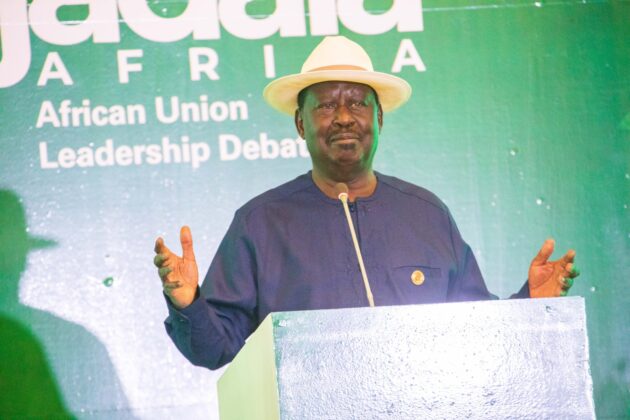
Your Story Defines You—And Baba’s Story Is Winning Him Africa » Capital News
You can never be that which you have not become. But your story defines you—and you must tell it. Your story is not just your history; it is your identity, your character, and the roadmap of what you have become. It reveals to others who you truly are.
Interestingly, in telling your story, you may offend those who either have no story, have unflattering ones, or whose stories expose a lack of integrity and substance. Naysayers often feel threatened by authentic narratives because such stories highlight the contrast between genuine experience and hollow posturing.
Today, Baba stands on the cusp of securing the African Union Commission (AUC) chairmanship—not simply because of political strategy, but because his story speaks for itself across the continent. He has narrated that story with eloquence and consistency throughout his public service. And during the Mjadala Africa debate, echoes of that same story rang out.
Baba’s debate performance was a masterclass in leadership storytelling—rooted not in blame games, but in critical engagement with Africa’s persistent challenges. Rather than point fingers, he dissected issues like Africa’s failure to silence the guns, highlighting systemic flaws and offering strategic, actionable solutions. His calm, measured tone and diagnostic approach resonated with an audience hungry for substance over spectacle—a leader who understands both the problems and the paths forward.
In stark contrast, one of Baba’s main challengers took a more dialectic, confrontational approach. Though occasionally insightful on granular matters, his tone revealed a lack of continental experience and diplomatic finesse. His debate style missed the mark in understanding who votes in AUC elections—yet, predictably, he found cheerleaders among a few Kenyan keyboard warriors who, in terms of governance experience, reflect the same deficit.
Baba, by comparison, demonstrated a deep grasp of tact, nuance, and collaborative diplomacy, reinforcing his stature as a statesman capable of uniting Africa under a shared vision.
As we reflect on past elections, it’s hard to forget certain leaders who, in the euphoria of the campaign trail, shockingly dismissed the importance of history. Whether or not their electorates listened, it’s now clear that many of them—and their constituents—are lamenting those choices. They bought into the fallacy of the “now and here,” following choreographed, empty political rhetoric from figures whose own stories belied their promises. When a leader lacks a credible track record, they will often deflect public discourse away from their own story—because it reveals nothing of value.
As Chimamanda Ngozi Adichie rightly said, “The consequence of the single story is that it robs people of dignity.” Today’s world demands multiple perspectives—and the most credible source of your story is you.
Baba is winning because of his story. A story of stoic determination, of fighting for justice and democracy. A story he passionately articulated during the debate, linking his reformist past to a visionary future for Africa. His message of resilience, inclusivity, and development has resonated across the continent, elevating him as the first among equals.
In this era of big data, the Internet of Things, blockchain, and AI, when people search your name, they find your story. And Baba’s story, from a multiplicity of sources, is a compelling one.
When given a platform, tell your story. It will serve you well. Your story is your essence. Baba’s is one of triumph over adversity, unwavering commitment to democracy, and deep connection with the people he has served for decades.
As for me, my story begins as a young boy from Suna East, cheering for Migori United, passionate about football, and later entrusted to serve as Chair of the FKF Electoral Board. You can never be that which you have not become—but your story, through words and actions, will always reveal who you are.
Because ultimately, you can only be that which you have become.